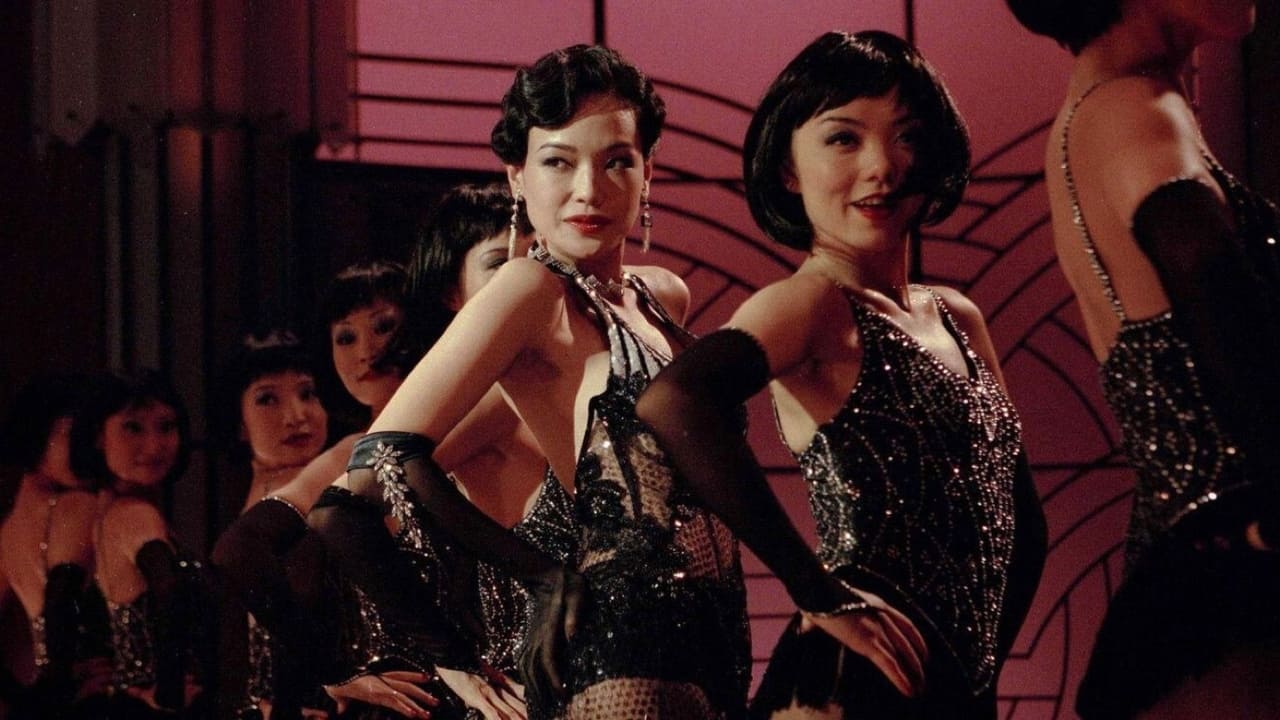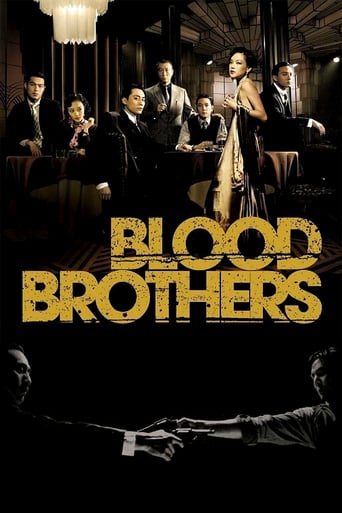

I got this movie very cheap together with a bunch of others. I want to explore new movies and maybe go into unknown territory. I take a chance. Often the movies are bland or just bad. Now and again I find a movie like this which makes up for all the others.This movie tells a rather long story in a short time. Seeing all that happens, this movie could easily been an hour longer and still have been interesting. Where many other movies fail doing this. This works.There are very many scenes and quite little dialogue (not too little though) and somehow it works. The scenes often has memorable details and what comes next is done in a lot better way than most American movies which are too much cliché or just too random.The movie constantly has shades of innocence and darkness which makes it not fall into the pit of being too serious or too corny.I thought the movie was okay at first but seeing how it went on and rarely was predictable made me respect it more and more for each scene. A real treat to watch.When I soon saw the grade on IMDb has was very surprised. 5,5 / 10? That is a mediocre movie to me.. One of the others I have taken a chance for that left little impression. This has left me with a lot of impressions. I highly recommend this movie and I don't even know Chinese. Just watching via subtitles works very fine.
... View MoreApparently a reworking of John Woo's BULLET IN THE HEAD - not that you'll recognise much of it - BLOOD BROTHERS is a film made with a lot of effort behind it. The sumptuous 1930s settings are brought to life in a similar way to BOARDWALK EMPIRE, and the costumes, sets, and everything else is quite exemplary. Plus, they've brought in actors of the calibre - and popularity - of Daniel Wu, Shu Qi, and Ye Liu to act in the production. It has to be good, right? Well, no, not really. The problem with BLOOD BROTHERS is that the storyline is extremely simplistic, concerning only half a dozen or so main characters who end up betraying and falling out with one another as the story progresses. It's way too slow-moving and simplistic for the running time, meaning that much of this is rather dull, despite the best efforts of those involved. The acting is fine and there are a couple of exciting scenes, but overall the director is sub-par and the story feels routine and all too familiar.
... View MoreThree friends from the sticks go to Shanghai and become gangsters in around the Paradise club. As time goes on and they climb up the ladder they find their relationships tested.Replace Shanghai with Chicago or New York and you'd have an Oscar nominated film for the art direction and costuming. This is a great looking 1930's gangster film moved to China and its a joy to behold. Its one of those movies you'd like to use as a moving piece of art on the wall.Unfortunately the script is really lacking. Dialog is sparse and not very colorful. Its almost bland retread dialog and it takes the edge off things. the characters are less then thrilling. The look the part but they don't have much beyond the look to carry them. Worse is the plot line which is a tad been there done that, but also really lacks any real action. yes there are some beatings and shootings but nothing really large scale until the final half hour, or rather the final shoot out. There is no real action to lift these characters up and put them into a a heroic or anti-heroic pantheon- there is nothing that makes them larger than life. It could be argued that the film that looks this good, opulent and often epic, but is ultimately a small scale story over inflated. had this been filmed less grandly it would have played differently-probably better-since we would not have been waiting for something epic to happen. This isn't to diminish the final shoot out which has a very high level of "Hong Kong Cool" its just that the 90 minutes that proceed it are undeserving of the pay off.Worth a look on cable or as a borrow, but not something I'd search out (or watch again) (Just a question-how many Chinese films over the last decade or so all are called Blood Brothers in English?)
... View MoreWith the 30's Shanghai as background, the film is a gangs story, a romance story, a brotherhood story and a simple story, with a theme portraying the lust for power against brotherhood piety. The narrative is unrestricted with plots generally linear albeit that it is told in flashback. The story embeds complex relations among characters with such relations & revenges constituting parallel narratives for similarity and contrast. The narrative is framed from the perspective of Feng (Daniel Wu) and supplemented with ancillary perspective from the other lead, Mark (Chen Chang). Director Alexi Tan attempts to make it moderately stylistic by use of freeze action (not freeze frame), complete silence and some other cinematographic devices (obviously Tan restrains it from being overdone). Though the movie comes with strong leads and their fine staging, the diegesis is relatively weak and shallow in portraying the evolution of the key antagonists' personalities down the plots. Nevertheless, visual motif (flicking of cigarette on a cigarette box) is repeatedly used to reinforce the use of power and the desire for such. In terms of visuals, the film comes with replete elegant costumes and settings with Mckintoshes, western hats, suits and cuffed shirts' sleeves filling the mise-en-scenes. Fine mastering of lighting and shooting angles in the presence of both diegetic and non-diegetic music delivers a moody combination of visual and acoustic amusement to the audience. The gun-pointing scenes are fairly flamboyant in mounting up tension whilst sudden fires and zigzags of characters' motions bring occasional shocks to the audience and generate uncomfortable surprises to the audience. Yet the visual-acoustic artifice is less than sufficient to redress its shortcoming in the meek, if not weak, psychological coverage of the characters. The film is another product in which substance is subordinate to style.
... View More